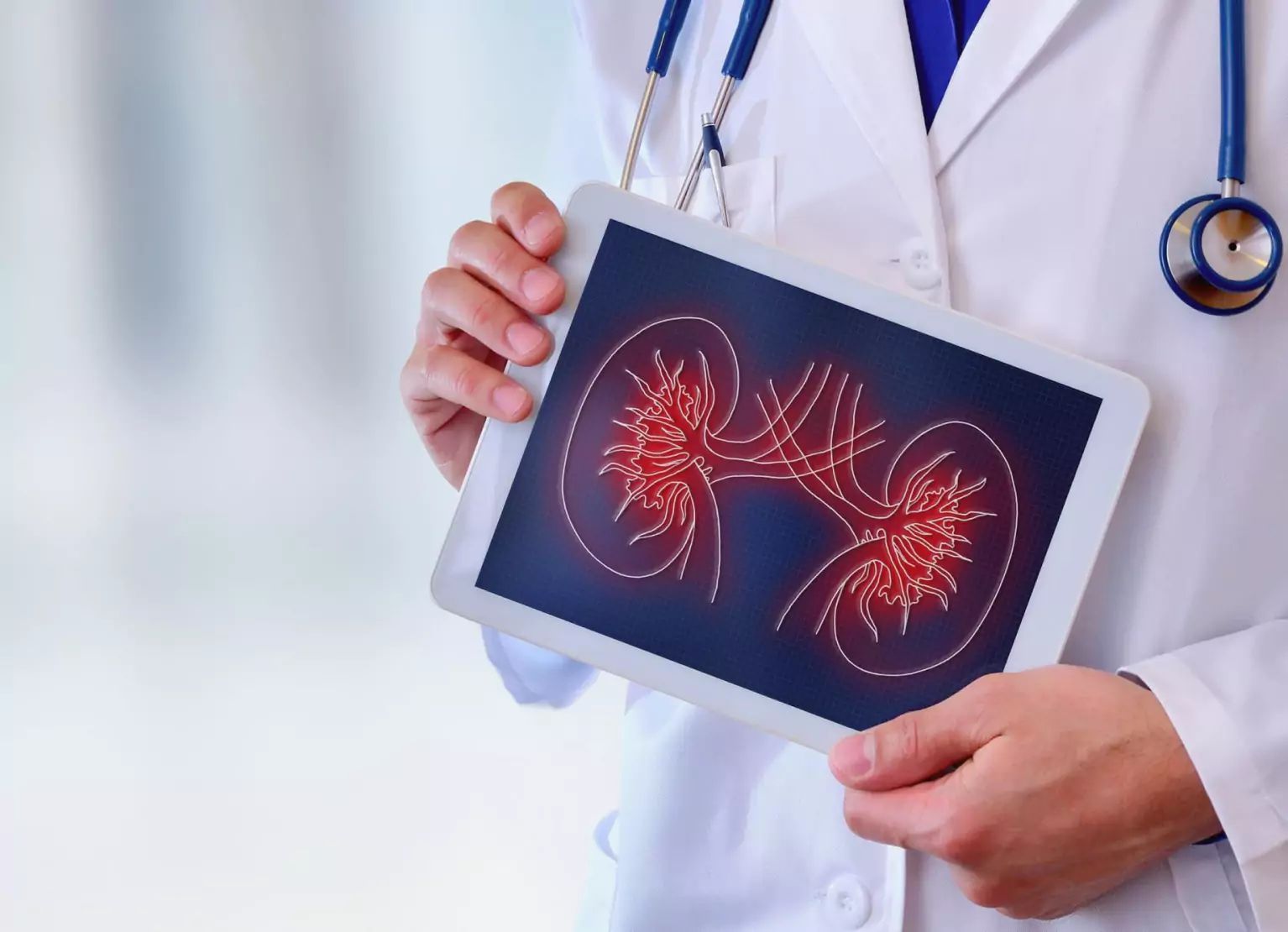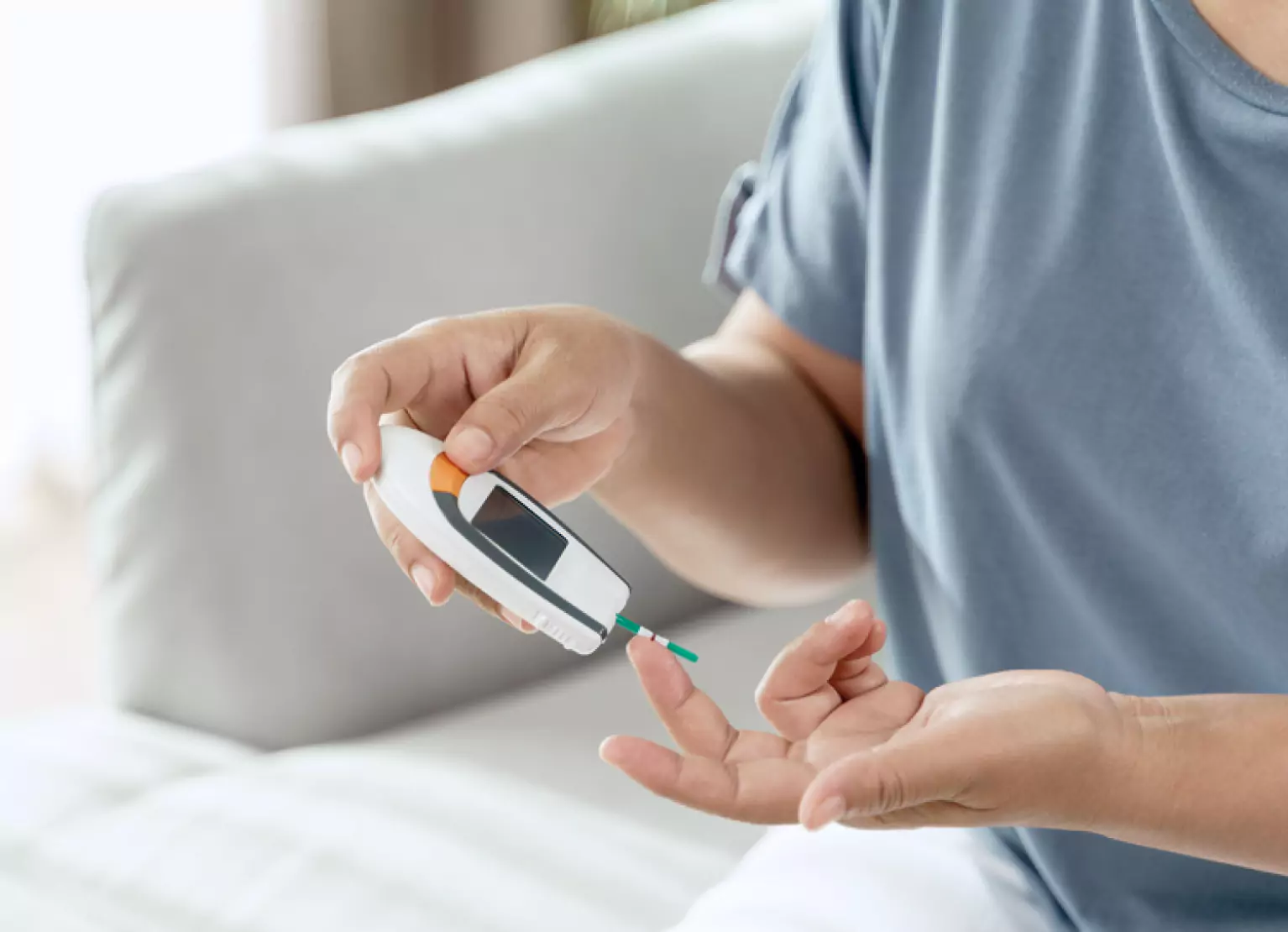Managing Blood Sugar for Good Kidney Health

Key Takeaways
Many people look to special diets or cleanses to flush toxins out of their body, but did you know that the human body already has two detoxifying organs that help us remove the waste from our blood? That’s right—that role belongs to the kidneys and the liver!
The kidneys are two identical vital organs in the body that act like water filters, separating the waste from the blood. If the kidneys fail to filter the blood, the body won’t be able to get rid of the waste properly which can lead to serious complications and can even be fatal.
Taking care of your kidneys is extremely important, so let’s take a deep dive into how high blood sugar levels can be a risk factor for kidney failure and what you can do to keep your kidneys healthy.
How Do the Kidneys Function?

The kidneys are two bean-shaped organs situated below the rib cage on either side of the spine. Our kidneys act as filters for blood circulation, balancing the amount of fluid in your body, and releasing vitamins, minerals, and hormones that keep your body alive and well.
Inside of the kidneys, there are millions of small molecules called nephrons which have a tiny filter inside of them called the glomerulus. Every glomerulus is attached to a tubule, through which the filtered liquid can travel back into circulation and remove waste.
These vital organs are also in charge of producing certain hormones that are involved in maintaining a healthy blood pressure, producing red blood cells, and ensuring proper absorption of calcium into the bones. Apart from these functions, the kidneys are also involved in balancing the body’s glucose levels via a process called gluconeogenesis.
What are the Most Common Kidney Diseases?

There are two main types of kidney diseases: acute and chronic. These conditions can be caused by genetic factors, a buildup of certain metabolites in the kidneys, slow kidney function, high glucose levels, and diabetes. Around 10 percent of the global population is affected by chronic kidney disease.
Acute Kidney Injury
The kidneys can experience short-term, sudden damage causing them to stop functioning properly, which is something that usually occurs as a complication stemming from another health condition.
Acute kidney damage is treatable when caught early, and early intervention can prevent the condition from worsening and causing other kinds of organ issues. However, life-threatening forms of acute kidney injury can require dialysis, which is a treatment option that uses a machine to filter the blood and support the kidneys in carrying out their function.
Chronic Kidney Disease
Diabetes is currently the most common cause of chronic kidney disease (or CKD), as consistently high blood sugar levels can put too much pressure on the nephrons and damage them. Other factors such as cardiovascular disease can also increase your risk for developing CKD.
Diabetic kidney disease affects 1 in 3 people with diabetes and can progress into heart diseases or even to end-stage kidney disease if untreated.
Kidney disease affects potassium levels, impairs heart function, causes anemia, and can cause damage to the central nervous system so treatment options that focus on slowing the progression of the disease are important.
Fortunately, many types of kidney conditions can be prevented with healthy lifestyle modifications and dietetic interventions. A simple urine or blood test can detect whether our kidneys work efficiently or not, and it can also prevent future complications.
The Relationship Between the Kidneys and Blood Sugar

The kidneys play a major role in the release of glucose in the bloodstream through a process called gluconeogenesis, where glucose is produced from non-carb sources and can later be stored in the liver.
Besides the production of glucose, kidneys are also involved in filtering and reabsorbing glucose in the blood. If the kidneys sense the presence of glucose in the tubule, the glucose gets reabsorbed with the help of carrier proteins, and urine remains glucose-free. However, if the levels of glucose are too high and there are not enough proteins to transport glucose, it can be excreted in the urine and lead to kidney disease.
Diabetes and Your Kidneys
Diabetes is a disease that causes blood sugar levels to be too high, and in turn damages the nephrons as well as the blood vessels in the kidneys. In time, blood doesn’t get filtered as efficiently, which might cause the leaking of proteins and glucose into the urine and can lead to diabetic kidney disease. When waste, extra water, and salts stay in the body, they can also cause fluid retention and a rise in blood pressure.
For people with prediabetes, taking steps to regulate blood sugar levels and hyperglycemia is an important step to prevent developing kidney disease. Medical professionals recommend that people with diabetes get regular kidney screenings as CKD may not display symptoms.
Who is at Risk for Poor Kidney Health?
Studies have shown that people who are more susceptible to chronic kidney disease are smokers, people with a high sodium intake, and those with a family history of kidney problems. Individuals with conditions like obesity, hypertension, and heart disease or who don’t exercise regularly may also have higher chances of developing kidney conditions and type 2 diabetes.
The National Institute of Diabetes advises people living with diabetes mellitus that they’re at a higher risk of experiencing kidney issues, which is why it’s important to monitor your glucose levels. Glucose monitoring can be done by health care professionals with the help of A1C tests, but it can also be done with the help of CGM (continuous glucose monitoring) devices.
To find out if you are at risk of diabetic kidney disease and how well your kidneys are filtering your blood, you should consult with your doctor to learn if urine tests, blood tests, or other diagnostic screening options are right for you.
Tips to Keep your Kidneys Healthy

Adopting healthy dietary and lifestyle habits can be beneficial for our health in a number of ways. When it comes to the kidneys, monitoring blood pressure and blood glucose levels are just one way to keep your health in check. Here are seven things you can do to boost your kidney health:
1) Stay Hydrated
The kidneys are in charge filtering waste and excess water out of the blood. Drinking plenty of water helps the kidneys to filter out waste and deliver essential nutrients to the body. It’s important to note, however, that drinking too much water can have the opposite effect for people experiencing kidney failure, so check with your doctor before making any changes to your habits.
2) Watch Out for Certain Foods

Studies have found plant-based foods, coffee, and dairy to be beneficial for kidney health, however there are certain food patterns that may not support kidney health if you’re prone to chronic kidney disease. Excess protein (more than 1.5 grams per kilogram of body weight) is not recommended for people at risk for kidney disease.
Salt and sugar consumption should also be limited to protect the kidneys. To determine the adequate levels of such foods for your diet, consult a dietitian or medical professional.
3) Avoid Drinking Alcohol and Smoking
Alcohol and cigarettes are viewed as toxins for the body, so the kidneys have to work harder to filter the blood and flush out these toxins. The CDC recommends limiting alcohol intake to 2 drinks or less in a day for men and 1 drink or less in a day for women, and to completely avoid smoking.
4) Keep Track of Your Blood Glucose

Hyperglycemia can damage the nephrons and alter the blood filtering process in the kidneys. Managing your glucose levels and preventing spikes can improve kidney health and lower the risk of diabetic kidney disease.
5) Monitor Your Blood Pressure
High blood pressure can indirectly lead to a number of other heart problems, including heart attack, stroke, and kidney disease. Hypertension has been linked to advancing the symptoms of renal disease, so taking steps to lower your blood pressure can lower the risk of developing other conditions.
6) Exercise Regularly

Keeping active with regular physical activity is not only helpful with weight loss and maintaining a healthy weight, it can also have a positive impact on your kidney health. The CDC recommends adults get 150 minutes of moderate-intensity exercise per week.
7) Get Regular Kidney Screenings
If you are someone living with diabetes or believe you may be at risk for chronic kidney disease, the National Kidney Foundation recommends regular kidney health screenings to find and treat any potential issues in their early stages.
Find the right Nutrisense programto turn insight into progress.
Go Beyond Glucose Data with Nutrisense
Your glucose can significantly impact how your body feels and functions. That’s why stable levels are an important factor in supporting overall wellbeing. But viewing glucose isn't enough. Nutrisense, you’ll be able to learn how to use your body's data to make informed lifestyle choices that support healthy living.
One-to-one coaching
Sign up to access insurance-covered video calls to work with a glucose expert: a personal registered dietitian or certified nutritionist who will help tailor your lifestyle and diet to your goals.
Monitor and measure what matters
With the Nutrisense CGM Program, you can monitor your glucose with health tech like glucose biosensors and continuous glucose monitor (CGM)s, and analyze the trends over time with the Nutrisense App. This will help you make the most informed choices about the foods you consume and their impact on your health.
Find your best fit
Ready to take the first step? Start with our quiz to find the right Nutrisense program to help you take control.

Katie is a dietitian at Nutrisense. With over 11 years of experience as a dietitian in many areas of nutrition, Katie has worked as a clinical dietitian within a hospital, as well as in the fields of diabetes, sports and performance nutrition, recovery from addiction, and general wellness. She’s also an athlete and has run 8 marathons, including the Boston Marathon.


.webp)

